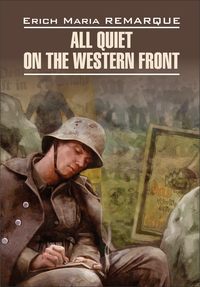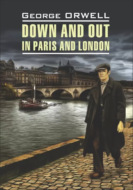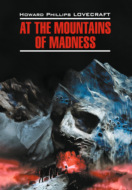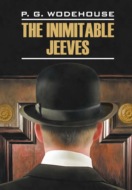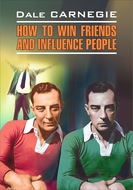Kitabı oku: «All Quiet on the Western Front / На Западном фронте без перемен. Книга для чтения на английском языке», sayfa 3
‘I’m sure Himmelstoss is quite a quiet chap as a postman,’ I say, once Kropp has got over his disappointment. ‘So how come he is such a bastard as a drill corporal?’
The question gets Kropp going again. ‘It isn’t just Himmelstoss, there are loads of them. As soon as they get a couple of stripes or a pip or two they turn into entirely different people and start behaving as if they chew iron bars for breakfast.’
‘So it’s the uniform that does that?’ I ask.
‘More or less,’ says Kat, and settles himself down to develop the point. ‘But the real reasons are a bit different. Look, if you train a dog so that it only eats potatoes, and then after a while you offer it a chunk of meat, it’ll still grab it because it’s in its nature. And if you offer a man a bit of power, the same thing happens; he’ll grab it. It’s instinctive, because when it comes down to it, a man is basically a beast, and it’s only later that a bit of decency gets smeared on top, the way you can spread dripping on your bread. The main thing about the army is that there is always somebody with the power to give orders to the rest. The bad thing is that they’ve all got far too much power: a corporal can harass a private, a lieutenant can harass an NCO or a captain can harass a lieutenant so badly that it can drive him mad. And because every one of them knows it, they all get used to the idea. Just take the simplest example: we’re on our way back from the parade-ground and we’re dog tired. Then comes the order to sing. Well, the singing isn’t too lively because we’re all happy if we can still carry our rifles without dropping them. And the next thing we know, the company is about-turned and we have an hour’s punishment drill. On the march back we get the order to sing again, and this time we sing. What’s the point of the whole thing? The man in command has got his way, because he’s got the power to do so. Nobody’s going to blame him – quite the reverse – he gets a reputation for being strict. And that’s just a trivial thing – there are plenty of other ways for them to mess you about. So I ask you: whatever a man is in civilian life, what sort of job could he possibly find where he could get away with that sort of behaviour without getting a punch on the nose for it? The only place he can do it is in the army. See what I mean – it always goes to their heads. And the less they had to say for themselves in civvy street82, the more it goes to their heads now.’
‘They do say that discipline is necessary…’ Kropp puts in casually.
‘They can always come up with reasons,’ growls Kat. ‘And that might be true. But you mustn’t mess people about. And you just try and explain it to a locksmith, or a stable lad83, or a labourer, try and explain it to the poor bloody infantry – they’re the majority out here, after all. All they see is that they get messed about, and then they get sent up the line, and they know perfectly well what’s necessary and what isn’t. I tell you, it’s amazing that the ordinary soldier sticks it here at the front at all. It’s amazing.’
Everyone agrees, because we all know that it is not till you are actually in the trenches that parade-ground drill disappears, and that it starts up again before you’ve gone back a mile behind the lines, no matter how big a piece of nonsense it might be, like saluting or formation marching. Because there is one unbreakable rule: a soldier has to be fully occupied all the time.
But now Tjaden turns up, red in the face. He is so worked up that he is stuttering, but he still gets the words out, grinning all over his face: ‘Himmelstoss is on his way here. He’s been sent to the front.’
Tjaden really detests Himmelstoss, because Himmelstoss decided to teach him a lesson in his own special way back in the barracks. Tjaden wets the bed – when he is asleep at night it just happens. Himmelstoss insisted that it was pure laziness, and wouldn’t be persuaded otherwise, so he came up with a method of curing Tjaden that was really typical of the man.
He hunted out another bed-wetter from one of the other barracks, a man called Kindervater, and put him in with Tjaden. The barracks where we did our training had the usual arrangement of bunks, one bed above the other, with the bottom part of each bed made of wire-mesh. Himmelstoss arranged things so that the pair of them were together, one on the top and the other on the bottom bunk. The one underneath, of course, had a really raw deal84. To compensate, they had to change places for the next night, so that the one from the bottom bunk got the top bunk, and could get his revenge. That was Himmelstoss’s idea of self-help.
It was mean-minded, but logically it was sound. Unfortunately it didn’t work, because the basic premisses were wrong: it wasn’t laziness that made either of the two men do it. Anyone could see that by looking at their sickly complexions. The whole business ended with them taking it in turns to sleep on the floor. The one doing that could easily have caught his death of cold —
Meanwhile Haie has come and sat down beside us. He gives me a glance with his eyes twinkling, and rubs his great paws thoughtfully. He and I shared the best day of our army career. It was the night before we had to go off to the front. We had been assigned to one of the newly formed regiments, but before that we had been ordered back to the garrison for kitting out, not to the recruiting depot though, but one of the other barracks. The morning after that we would be leaving very early. That evening we set out to get even with Himmelstoss. We had sworn weeks before that we would. Kropp had even gone so far as to declare that after the war he would try for an administrative job in the postal service, so that later on, when Himmelstoss was a postman again, he could get to be his boss. He painted a rosy picture of how he would clobber him. That was the real reason that Himmelstoss never managed to grind us down: we always counted on the fact that we’d get him sometime, by the end of the war at the latest.
Meanwhile we wanted to give him a damned good hiding. What could they do to us if he didn’t recognize us and if we were off early next morning anyway?
We knew what bar he spent his evenings in. To get from the bar back to the barracks he had to go down a dark lane without any buildings. We lay in wait for him there, hiding behind a pile of rocks. I had a quilt-cover with me. We were trembling with anticipation, wondering if he would be on his own. At last we heard his footsteps – that was a sound we knew very well indeed, we’d heard him often enough in the mornings, when the door would fly open and he would bellow, ‘Out of bed!’
‘On his own?’ whispered Kropp.
‘On his own.’ Tjaden and I crept round the pile of rocks.
We could already see the light reflected off his belt-buckle. Himmelstoss seemed to be a bit tipsy and he was singing. He went past without noticing a thing.
We got a firm grip on the quilt-cover, moved forward quietly, slipped it over his head from behind and pulled it downwards, so that he stood there as if in a white sack, unable to move his arms. The singing died away.
The next moment Haie Westhus was there. He pushed us aside with his arms spread out, just so that he could have the first go. With great delight he took up a stance, raised his arm like a railway signal, his hand as big as a shovel, and gave the white sack a wallop that would have felled an ox.
Himmelstoss lost his balance, rolled half-a-dozen yards and started to yell. We’d thought of that as well, and brought a pillow with us. Haie squatted down, put the pillow on his knee, grabbed at where he guessed Himmelstoss’s head to be and shoved it into the pillow. The noise was stifled right away. Haie let him take a breath from time to time, and what came from his throat then was a wonderful, high-pitched shriek that soon got cut off.
Now Tjaden unbuttoned Himmelstoss’s braces and pulled his trousers down. Meanwhile, he held a cane carpet-beater85 between his teeth. Then he stood up and moved into action.
It was a wonderful sight: Himmelstoss on the ground, Haie bending over him, holding the man’s head on his knees, with a fiendish grin on his face, his mouth wide open with delight, and then the twitching striped underpants, and the knock-kneed pair of legs which, trousers around the ankles, were performing spectacular movements with every blow that fell; and Tjaden, who showed no signs of tiring, standing over him like a woodcutter. In the end we literally had to pull him away, so that we could have our turns.
At last Haie pulled Himmelstoss to his feet again, and gave a private performance as the final act. He drew his right arm so far back before clouting him that it looked as if he was trying to pluck stars out of the night sky. Himmelstoss went down. Haie picked him up again, lined him up and gave him a second magnificently aimed wallop with his left hand. Himmelstoss howled, and fled on all fours. His striped postman’s backside shone in the moonlight.
We made ourselves scarce86 as fast as we could.
Haie looked around, and said with an air of grim satisfaction, though a bit oddly, ‘Revenge is as good as a feast.’
In fact Himmelstoss should have been pleased: his principle, that we should train each other, had borne fruit87 – when we used it on him. We had been dutiful pupils, quick to pick up his methods.
He never found out whom he had to thank for the whole thing. Anyway, he got a quilt-cover out of it; when we went back half an hour later to look for it again it was nowhere to be found.
That night was the reason that on the following morning we were able to set off in a reasonably cheerful state of mind. And because of that, some old goat was so moved that he referred to us as ‘young heroes’.
IV
We’ve been ordered up the line on wiring duty. The trucks turn up for us as soon as it starts to get dark. We scramble aboard. It is a warm evening, the twilight is like a blanket wrapped around us, and we feel comforted by this protection. It brings us closer together; even Tjaden, who is usually a bit stingy, gives me a cigarette and lights it for me.
We stand next to one another, packed tighty88, and no one can sit down. We aren’t used to sitting down anyway. At last Muller is in a good mood again; he is wearing his new boots.
The engines rev up, the trucks rattle and clatter. The road surfaces are worn out and full of holes. No lights are allowed, and so we run into the holes and nearly get thrown out of the truck. That possibility doesn’t bother us much. What would it matter – a broken arm is better than a hole through the belly, and plenty of us would actually welcome a chance like that to get sent home.
Alongside us, long columns of munition trucks are moving up. They are in a hurry and keep on overtaking us. We shout out jokes to the men and they answer us.
We make out a wall, which belongs to a house set a little way back from the road. Suddenly I prick up my ears. Can it be true? Then I hear it again, perfectly clearly. Geese! A glance towards Katczinsky; a glance back from him; we understand each other.
‘Kat, I think I can hear a candidate for the cooking-pot —’
He nods. ‘We’ll do it when we get back. I know my way around here.’
Of course Kat knows his way around. I bet he knows every drumstick on every goose for miles.
The trucks reach the firing area. The gun emplacements are camouflaged with greenery against air reconnaissance89, and it all looks like a military version of that Jewish festival where they build little huts outdoors. These leafy bowers would look peaceful and cheerful if they didn’t have guns inside them.
The air is getting hazy with smoke from the guns and fog. The cordite tastes bitter on the tongue. The thunder of the artillery fire makes our truck shake, the echo rolls on after the firing and everything shudders. Our faces change imperceptibly. We don’t have to go into the trenches, just on wiring duty, but you can read it on every face: this is the front, we’re within reach of the front.
It isn’t fear, not yet. Anyone who has been at the front as often as we have gets thick-skinned about it. Only the young recruits are jumpy. Kat gives them a lesson. ‘That was a twelve-inch. You can hear that from the report – you’ll hear the burst in a minute.’
But the dull thud of the shell-bursts can’t be heard at this distance. Everything is swallowed up in the rumble of the front. Kat listens carefully. ‘There’ll be a show tonight.’
We all listen. The front is restless. ‘Tommy’s90 already firing,’ says Kropp.
You can hear the guns clearly. It is the British batteries, to the right of our sector. They are starting an hour early. Ours never start until ten on the dot91.
‘What’s up with them?’ calls out Muller. ‘Are their watches fast or something?’
‘There’ll be a show, I tell you. I can feel it in my bones.’ Kat shrugs his shoulders.
Three guns thunder out just beside us. The gun flash shoots away diagonally into the mist, the artillery roars and rumbles. We shiver, happy that we’ll be back in camp by tomorrow morning.
Our faces are no more flushed and no paler than they usually are; they are neither more alert nor more relaxed, and yet they are different. We feel as if something inside us, in our blood, has been switched on. That’s not just a phrase – it is a fact. It is the front, the awareness of the front, that has made that electrical contact. The moment we hear the whistle of the first shells, or when the air is torn by artillery fire, a tense expectancy suddenly gets into our veins, our hands and our eyes, a readiness, a heightened wakefulness, a strange suppleness of the senses. All at once the body is completely ready.
It often seems to me as if it is the disturbed and vibrating air that suddenly comes over us with silent force; or as if the front itself is sending out its own electricity to put those unconscious nerve endings on to the alert.
It is the same every time. When we set out we are just soldiers – we might be grumbling or we might be cheerful; and then we get to the first gun emplacements, and every single word that we utter takes on a new sound.
If Kat stands in front of the huts and says ‘There’s going to be a show’ then that is his own opinion, nothing else. But if he says it out here, then the same words are as sharp as a bayonet on a moonlit night, cutting straight through the normal workings of the brain, more immediate, and speaking directly to that unknown element that has grown inside us with a dark significance – ‘There’s going to be a show’. Perhaps it is our innermost and most secret life that gives a shudder, and then prepares to defend itself.
For me, the front is as sinister as a whirlpool. Even when you are a long way away from its centre, out in calm waters, you can still feel its suction pulling you towards it, slowly, inexorably, meeting little resistance.
But the power to defend ourselves flows back into us out of the earth and out of the air – and most of all it flows out of the earth. The earth is more important to the soldier than to anybody else. When he presses himself to the earth, long and violently, when he urges himself deep into it with his face and with his limbs, under fire and with the fear of death upon him, then the earth is his only friend, his brother, his mother, he groans out his terror and screams into its silence and safety, the earth absorbs it all and gives him another ten seconds of life, ten seconds to run, then takes hold of him again – sometimes for ever.
Earth – earth – earth – !
Earth, with your ridges and holes and hollows into which a man can throw himself, where a man can hide! Earth – in the agony of terror, the explosion of annihilation, in the death-roar of the shell-bursts you gave us that massive resurgence of reconquered life. The madness, the tempest of an existence that had practically been torn to shreds flowed back from you into our hands, and so we burrowed deep into you for safety, and in the speechless fear and relief of having survived the moment, our mouths bit deeply into you!
With the first rumble of shellfire, one part of our being hurls itself back a thousand years. An animal instinct awakens in us, and it directs and protects us. It is not conscious, it is far quicker, far more accurate and far more reliable than conscious thought. You can’t explain it. You are moving up, not thinking of anything, then suddenly you are in a hollow in the ground with shrapnel flying over your head; but you can’t remember having heard the shell coming or having thought about taking cover. If you had relied on thought, you would have been so many pieces of meat by now. It was something else, some prescient, unconscious awareness inside us, that threw us down and saved us without our realizing. But for this, there would long since have been not a single man left alive between Flanders92 and the Vosges93.
We set out as soldiers, and we might be grumbling or we might be cheerful – we reach the zone where the front line begins, and we have turned into human animals.
We move into a rather scrappy wood. We pass the field kitchens. Just beyond the wood we climb down from the trucks and they go back. They will be picking us up again before first light tomorrow.
Mist and smoke from the artillery is chest-high over the meadows. The moon is shining on it. Troops are moving on the roadway. The steel helmets give a dull reflection in the moonlight. Heads and rifles stick out from the white mists, nodding heads and swaying rifle barrels.
Further on, the mist clears. The heads turn into whole figures – tunics, trousers and boots come out of the mist as if from a pool of milk. They form into a column. The column marches, straight ahead, the figures become a wedge, and you can no longer make out individual men, just this dark wedge, pushing forwards, made even more strange by the heads and rifles bobbing along on the misty lake. A column – not men.
Light artillery and munition wagons move in from a side road. The backs of the horses shine in the moonlight and their movements are good to see – they toss their heads and their eyes flash. The guns and the wagons glide past against an indistinct background like a lunar landscape, while the steel-helmeted cavalrymen look like knights in armour from a bygone age94 – somehow it is moving and beautiful.
We make for the equipment dump. Some of our men load the angled, sharpened iron uprights on to their shoulders, the rest stick straight iron bars through rolls of barbed-wire and carry them away. They are awkward and heavy loads.
The terrain gets more pitted. Reports come back to us from up ahead: ‘Watch where you’re going, there’s a deep shell hole on the left’ – ‘Mind the trench’ —
We keep our eyes wide open, and test the ground with our feet and with the bars before we put our weight down. The column stops suddenly; you bang your face into the barbed-wire roll that the man in front is carrying, and you swear.
A couple of shot-up trucks95 are in the way. A new order comes: ‘Pipes and cigarettes out!’ We are close to the frontline trenches.
In the meantime it has gone completely dark. We skirt around a little copse and our sector is there before us.
There is an indistinct reddish glow from one end of the horizon to the other. It changes constantly, punctuated by flashes from the gun batteries. Verey lights96 go up high above it, silver and red balls which burst with a shower of white, red and green stars. French rockets shoot up, the ones with silk parachutes that open in the air and let them drift down really slowly. They light up everything as clear as day, and their brightness even reaches across to us, so that we can see our shadows stark against the ground. The lights hang in the sky for minutes at a time before they burn out. New ones shoot up at once, everywhere, and there are still the green, red and blue stars.
‘Going to be a bad do97,’ says Kat.
The thunder of the guns gets stronger until it becomes a single dull roar, and then it breaks down again into individual bursts. The dry voiced machine-guns rattle. Above our heads the air is full of invisible menace, howling, whistling and hissing. This is from the smaller guns; but every so often comes the deep sound of the big crump shells, the really heavy stuff, moving through the dark and landing far behind us. They make a bellowing, throaty, distant noise, like a rutting stag, and they go far above the howl and the whistle of the small shells.
Searchlights begin to sweep the black sky. They skim across it like huge blackboard pointers98, tapering down at the bottom. One of them pauses, shaking a little. At once another is beside it, they cross and there is a black, winged insect trapped and trying to escape: an airman. He wavers, is dazzled and falls.
We ram the iron posts in firmly at set intervals. There are always two men holding the roll while the others pay out the barbed-wire. It is that horrible wire with a lot of long spikes, close together. I am out of practice at paying it out, and rip my hand open.
After a few hours we have finished. But there is still some time before the trucks are due. Most of us lie down and sleep. I try to as well, but it is too cold. You can tell that we are not far from the sea, because you are always waking up from the cold.
At one point I do fall into a deep sleep. When I wake up suddenly with a jolt, I have no idea where I am. I see the stars and I see the rockets, and just for a moment I imagine that I have fallen asleep in the garden at home, during a fireworks party of some sort. I don’t know whether it is morning or evening, and I lie there in the pale cradle of dawn waiting for the gentle words which must surely come, gentle and comforting – am I crying? I put my hand to my face; it is baffling, am I a child? Smooth skin – it only lasts for a second and then I recognize the silhouette of Katczinsky. He is sitting there quite calmly, old soldier that he is, smoking his pipe – one of those with a fid over the bowl, of course. When he sees that I am awake he says, ‘That made you jump. It was only a detonator, it whizzed off into the bushes over there.’
I sit up; I feel terribly alone. It is good that Kat is there. He looks thoughtfully at the front and says, ‘Lovely fireworks. If only they weren’t so dangerous.’
A shell lands behind us. A couple of the new recruits jump up in fright. A few minutes later another shell comes over, closer than before. Kat knocks out his pipe. ‘Here we go.’
It has started. We crawl away as fast as we can. The next shell lands amongst us.
Some of the men scream. Green rockets go up over the horizon. Dirt flies up. Shrapnel buzzes. You can hear it landing when the noise of the blast has long gone.
Close by us there is a recruit, a blond lad, and he is terrified. He has pressed his face into his hands. His helmet has rolled off. I reach for it and try to put it on to his head. He looks up, pushes the helmet away and huddles in under my arm like a child, his head against my chest. His narrow shoulders are shaking, shoulders just like Kemmerich had.
I let him stay there. But to get some use out of his helmet I shove it over his backside, not as some kind of a joke, but deliberately, because it’s the most exposed area. Even though the flesh is solid, a wound there can be bloody painful, and besides, you have to be on your stomach for months in a military hospital, and afterwards you are pretty certain to have a limp.
There’s been a direct hit somewhere not far off. Between the impacts you can hear screaming.
At last it calms down. The shellfire has swept over us and moved on to the back line of reserve trenches. We risk a look out. Red rockets are shimmering in the sky. Probably there will be an attack.
It stays quiet where we are. I sit up and shake the recruit by the shoulder. ‘It’s all over, old son. We got through again.’
He looks around in bewilderment. ‘You’ll get used to it,’ I tell him.
He notices his helmet and puts it on his head. Slowly he comes to himself. Then suddenly he blushes scarlet and his face has a look of embarrassment. Cautiously he puts his hand to his rear end99 and gives me an agonized look. I understand at once: the barrage scared the shit out of him. That wasn’t the precise reason that I put his helmet where I did – but all the same I comfort him. ‘No shame in that, plenty of soldiers before you have filled their pants when they came under fire for the first time. Go behind that bush, chuck your underpants away, and that’s that —’
He clears off. It gets quieter, but the screaming doesn’t stop. ‘What’s up, Albert?’ I ask.
‘A couple of the columns over there got direct hits.’
The screaming goes on and on. It can’t be men, they couldn’t scream that horribly.
‘Wounded horses,’ says Kat.
I have never heard a horse scream and I can hardly believe it. There is a whole world of pain in that sound, creation itself under torture, a wild and horrifying agony. We go pale. Detering sits up. ‘Bastards, bastards! For Christ’s sake shoot them!’
He is a farmer and used to handling horses. It really gets to him.
And as if on purpose the firing dies away almost completely. The screams of the animals become that much clearer. You can’t tell where it is coming from any more in that quiet, silver landscape, it is invisible, ghostly, it is everywhere, between the earth and the heavens, and it swells out immeasurably. Detering is going crazy and roars out, ‘Shoot them, for Christ’s sake, shoot them!’
‘They’ve got to get the wounded men out first,’ says Kat.
We stand up and try to see where they are. If we can actually see the animals, it will be easier to cope with. Meyer has some field glasses100 with him. We can make out a dark group of orderlies with stretchers, and then some bigger things, black mounds that are moving. Those are the wounded horses. But not all of them. Some gallop off a little way, collapse, and then run on again. The belly of one of the horses has been ripped open and its guts are trading out. It gets its feet caught up in them and falls, but it gets to its feet again.
Detering raises his rifle and takes aim. Kat knocks the barrel upwards. ‘Are you crazy?’
Detering shudders and throws his gun on to the ground.
We sit down and press our hands over our ears. But the terrible crying and groaning and howling still gets through, it penetrates everything.
We can all stand a lot, but this brings us out in a cold sweat. You want to get up and run away, anywhere just so as not to hear that screaming any more. And it isn’t men, just horses.
Some more stretchers are moved away from the dark mass. Then a few shots ring out. The big shapes twitch a little and then become less prominent. At last! But it isn’t over yet. No one can catch the wounded animals who have bolted in terror, their wide-open mouths filled with all that pain. One of the figures goes down on one knee, a shot – one horse collapses – and then there is another. The last horse supports itself on its forelegs, and moves in a circle like a carousel, turning around in a sitting position with its forelegs stiff – probably its back is broken. The soldier runs across and shoots it down. Slowly, humbly, it sinks to the ground.
We take our hands away from our ears. The screaming has stopped. Just a long-drawn-out, dying sigh is still there in the air. Then, just like before, there are only the rockets, the singing of the shells, and the stars – and it feels almost eerie.
Detering walks about cursing. ‘What have they done to deserve that, that’s what I want to know?’ And later on he comes back to it again. His voice is agitated and he sounds as if he is making a speech when he says, ‘I tell you this: it is the most despicable thing of all to drag animals into a war.’
We go back. It’s time to head for the trucks. The sky has become just a trace lighter. Three a.m. The wind is fresh and cool and at that livid hour our faces look grey.
We move slowly forwards in Indian file101 through the trenches and shell holes and at last we reach the foggy area once again. Katczinsky is uneasy, and that is a bad sign.
‘What’s the matter, Kat?’ asks Kropp.
‘I just wish we were home.’ Home – he means back in camp. ‘Won’t be long now, Kat.’
He is nervous. ‘I don’t know, I don’t know…’
We get to the communication trenches and then back to the meadows. The little wood is in front of us; we know every inch of ground here. We can already see the graves of the rifle brigade, with the mounds of earth still piled up, and the black crosses.
At that very moment we hear a whistling noise behind us, it gets louder, there is a crash and then a roar. We’ve ducked down – a hundred yards in front of us a wall of flame shoots up.
The next moment part of the wood is lifted up above the tree tops when the second shell hits, three or four trees go up with it and are smashed into pieces in the process. The follow-up shells are already hissing down with a sound like a safety valve102 – heavy fire – ‘Take cover!’ somebody shouts, ‘Take cover!’
The meadows are flat, the wood is too far away and too dangerous; the only cover is the military cemetery and the grave mounds. We stumble into the darkness, and soon every man has flattened himself behind one of the mounds.
Not a moment too soon.103 The dark turns into madness. It rocks and rages. Dark things, darker than the night itself, rush upon us in great waves, over us and onwards. The flashes of the explosions light up the cemetery.
There is no way out. In the light of one of the shell-bursts I risk a glance out on to the meadows. They are like a storm-tossed sea, with the flames from the impacts spurting up like fountains. No one could possibly get across that.
The wood disappears, splintered, shattered, smashed. We have to stay in the cemetery.
The earth explodes in front of us. Great clumps of it come raining down on top of us. I feel a jolt. My sleeve has been ripped by some shrapnel. I clench my fist. No pain. But that is no comfort, wounds never start to hurt until afterwards. I run my hand over the arm. It is scratched but still in one piece. Then I get a knock on the head and everything blurs. But as quick as a flash comes the thought: you mustn’t faint! I sink down into the black mud but get up again immediately. A piece of shrapnel hit my helmet, but it came from so far off that it didn’t cut through the steel. I wipe the dirt out of my eyes. A hole has been blown in the ground right in front of me, I can just about make it out104. Shells don’t often land in the same place twice and I want to get into that hole. Without stopping I wriggle across towards it as fast as I can, flat as an eel on the ground – there is a whistling noise again, I curl up quickly and grab for some cover, feel something to my left and press against it, it gives, I groan, and the earth is torn up again, the blast thunders in my ears, I crawl under whatever it was that gave way when I touched it, pull it over me – it is wood, cloth, cover, cover, pretty poor cover against falling shrapnel.
Ücretsiz ön izlemeyi tamamladınız.
